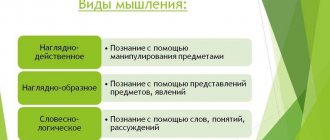Who is a speaker
An orator is a person who has oratory abilities, which consist of the ability to speak beautifully and convincingly, to master the tools of acting, and to have psychological knowledge.
The talent of eloquence can be innate. It is even believed that each of us has it, only to varying degrees. This means that anyone can develop this gift, taking into account individual characteristics and working on themselves.
With the development of oratorical skills comes the skill of public speaking, which has its own properties:
- special content of speech - linguistic and non-verbal, in the form of facial expressions and gestures, methods of influencing the listener;
- focus - receiving feedback from the audience;
- effectiveness - as a result of the psychological state of the speaker and his authority among the public.
But you can structure your speech competently if you use the rules of oratory:
- The presentation should be structured for better assimilation and accessible to understanding.
- Speech that is correct, expressive and without filler words is capable of capturing the attention of the public for a long time.
- The information provided must be useful and truthful.
- The emotional content of the speech and the dry language of numbers will create balance and will not allow the listener’s interest to evaporate.
- His attention should not be abused; conciseness and informational capacity of speech are welcome.
- The beginning of a speech and its final part have a greater effect on the audience than the content - this should be taken into account in the compositional structure of the speech.
- You need to speak to the audience in a language they understand, taking into account their intellectual level, age category, and social affiliation.
And then she will have the qualities necessary for oratory:
The image of a talented speaker is charismatic and closely associated with such characteristics and traits as self-confidence, inspiration, erudition, the ability to improvise, vividness of thought, strong voice, and expressive gestures.
We’ll talk later about how to learn public speaking on your own.
Oratory in life
The skill of public speaking is the use of tools against the background of psychological stress. And no matter what books we read, no matter how hard we try to apply our knowledge, we cannot do without a psychological understanding of a person.
In public speaking, the likelihood of something going wrong is high. No matter how a person manages the situation, the success of his speech depends on the number of listeners who have their own habits and motivation. The level of tension during a speech is extremely high, so the speaker’s skills tend to be blocked.
The art of oratory does not have prescribed laws for high-quality performance, but it is clear that it is a tool of influence on others that has no equal. No motivation system can give such an effect as an energizing motivational speech. No amount of effort to relieve tension and instill confidence in a crisis situation will provide such a boost as one inspiring speech.
A person who applies and improves the art of oratory simultaneously develops a higher degree of self-confidence, emancipation, and freedom.
Speaking in public, we hone our skills of argumentation, eloquence, and persuasion. In one-on-one communication, these skills work in the same way, but in a slightly simpler way.
Types of eloquence
Depending on the composition of the audience and the topic, eloquence is divided into types:
Oratory speech can have different goals of influencing the listener and it happens:
- informational, introduces new facts, information, knowledge;
- entertaining, has a fun character;
- persuasive, in which the speaker seeks the listener's agreement with his point of view;
- uplifting, emotionally inspiring;
- calling to action, agitating to take action.
Exercises for developing beautiful speech
- Choose an item of kitchen utensils or home furnishings, for example, a cabinet, and try to describe it for 10 minutes in an artistic style, beautiful literary language.
- Take any text and replace all the verbs in it with synonyms, then do the same with nouns and adjectives.
- A very interesting word game is to create phrases from words with opposite meanings. For example, hot snow, white night, brave hare.
- Think of a word and come up with a separate word for each letter that makes it up. For example, winter - “Zoya is looking for my album.”
- Retell the newspaper story in your own words, add your own opinion about what happened, season it with humor, if appropriate.
- Make it a rule to learn 5 or 10 new words every day.
As you can see, the exercises are simple, but regularity is the main condition and the key to results.
The structure of oratory speech
In order for a public speech to achieve its goal and leave no one indifferent, it is built according to the plan and content in a certain order, which is called composition.
The introduction should attract attention, interest, establish contact with the audience, and give an idea of the topic of the upcoming message with a brief description of the issue.
The main part of a public speaking speech is the presentation of the material itself, argumentation, and the use of facts and logical evidence.
The conclusion is intended to summarize and generalize what has been said, emphasize the main idea, draw conclusions, and inspire listeners.
It is advisable to approach creatively when working on a composition. While maintaining a clear sequence and consistency of its elements, it is important not to lose your individual style.
Newbie mistakes in rhetoric
Discomfort and uncertainty during public speaking indicate a lack of knowledge of how to interact with an audience. The first and most important piece of advice is to treat your audience as an interlocutor. Undoubtedly, sometimes you encounter a difficult audience, just as you can encounter a difficult interlocutor. But even in such a situation, you can find an approach to people and build a productive dialogue. Dialogue is what should happen between the speaker and the audience, even if only the speaker speaks. Dialogue in this context is interaction with people, working with their reactions and responses. But let's look at the most common mistakes of novice speakers, which also happen to very responsive audiences.
Speech too quickly or without pauses
Such a flow of information cannot be well received because it tires the listener and sounds incoherent and unstructured. In addition, pauses help to evoke emotions in the listeners, which is very important for a good monologue. Meaningful pauses also make speech structured and understandable.
Apologies and excuses
Unfortunately, the audience of listeners is unlikely to show understanding towards the rhetorician, but excuses and apologies will demonstrate the speaker’s insecurity. After this, it will be impossible to regain the attention of the audience. Simple psychology comes into play: why listen to someone who doesn’t believe what he says? This is how the manifestation of uncertainty is interpreted. Alas, no one will figure out whether this is really so.
Fussiness
During a speech, you not only talk, but also show. For a holistic perception of the picture, it is important to be in harmony with your words and intonations. Walking around the stage, constantly fiddling with something in your hands, straightening your hair - all this will irritate other people and will reveal your insecurity.
Lifelessness and monotony
The other extreme is rigidity of movements and complete dispassion of speech. Some people, when nervous, become stupefied and look as if they have been petrified. Such a performance will be perceived even worse. If you feel stuck, make small movements over and over again, looking a few degrees above the audience. This will help you bring your attention back inward and overcome some of your anxiety. It is important to return your gaze to the audience each time and continue speaking.
Monotonous speech is also a bad sign. To avoid getting lost, imagine that you are talking to a close friend and speak from the heart, even if your words deviate from the pre-written speech. Being sincere is always better than being unnatural.
Apologies and excuses
Phrases like “Sorry, but I’m a bad speaker” are the worst solution for winning over the audience. As already mentioned, displaying uncertainty or feigned modesty will cause listeners to initially doubt the speaker, and their goodwill will be extremely difficult to regain.
Monologue
Despite the fact that public speaking is a monologue in its essence, it is important not to forget about the audience, ask questions, and interact with the audience. Good rhetoricians communicate with the audience, call for volunteers and give examples of real people.
Features of oratory
Oratory speech is characterized by the following features:
Oral presentation. The process of communication with the audience occurs directly when voicing thoughts. Texts for public speaking are learned by ear and structured in such a way as to be easy to understand.
Availability of feedback. A good speaker feels the audience. He distinguishes mood, catches reactions to what is said, guesses emerging questions and flexibly builds further dialogue.
Use of various means of communication. The use of gestures, pantomime, intonation and other non-verbal methods is inherent in oratory, which distinguishes it from ordinary oral speech.
The relationship between the text prepared for speech and its oral interpretation. Choosing the right tone of communication helps to present information in an intelligible form and find contact with the audience.
Lexicon
Training in front of a mirror, practicing in public only works if your speech is rich and interesting. Books will help you achieve this - there is no alternative. Read various literature. Scientific will make you smarter, professional will help you reach heights in your profession. Books about business will teach you how to make money and understand processes in the economy.
Under no circumstances should one refuse fiction. Choose the best authors in your favorite genres - from them you will learn to present thoughts and dry facts in an exciting way. Do you come across unfamiliar words? Be sure to find out their meaning and write it down for better memorization. Start your own dictionary and regularly update it with interesting expressions, catchphrases and quotes from famous people.
Read slowly. Analyze each phrase. How is it built, what emotional load does it carry? Perhaps you can use a certain turn of phrase in your speeches? Say your favorite sayings out loud and listen to how they sound.
It is very important to read smart books that you find difficult to understand. This is the only way you can develop your intelligence. If you disagree with the author, don't stop reading. Compose theses and think through your arguments. In direct communication with a live audience, you have to argue and prove that you are right very often. You must be prepared to give reasonable arguments and defend your opinions.
Oratorical techniques
Oratory techniques are used to improve the perception of information. They work either by orienting the listener to figurative perception, or by stimulating his mental activity.
For example:
- visual comparisons and short illustrative examples are especially appropriate when conveying numerical material;
- repeating what has already been said in other words creates a new image;
- the allegory clearly illustrates the speaker’s ideas and thoughts;
- antithesis by contrast enhances their perception;
- hyperbole exaggerates those points that need to be paid attention to;
- rhetorical questions do not require an answer, but stir up interest;
- an insertion when a casual remark made draws attention to what was said;
- unexpected words and actions heighten the listener's curiosity.
How to overcome stage fright
Here are tips to help you overcome stage fright. These rules are also very important when speaking. Especially in front of a large audience. If you follow the recommendations below, you will not have any problems with fear.
Why do so many people have stage fright?
Where does stage fright come from? The first problem is that people are always afraid of new things
or something that is rarely done. If you practice speaking weekly, you won't have such fear. You are no longer afraid to stand in front of a group of people and explain something to them.
And for a standard person who does not perform, this is a very unusual situation. People often feel awkward in it.
Therefore, you need to constantly practice and speak in public as often as possible. This way the situation will become ordinary and familiar to you.
The second reason why people are afraid to speak in public is the fear of making a mistake.
. Our culture is built on catching mistakes and giving negative points for them.
For example, at school, because of mistakes, they give a worse grade. At home, our parents punished us for bad behavior. That's why we are afraid of making a mistake.
This is where fear arises in the compartment!
I recommend not paying attention to mistakes and treating them calmly. Mistake is normal. You learn a lesson from it. And if you suddenly make a mistake again, it will only take you to the next level of knowledge.
Competence effect
The competence effect is the first tip against stage fright. If you are knowledgeable about the topic, you will feel more confident during the presentation. If you master the topic, then the words will automatically follow you.
Therefore, if you are not a big expert in your topic, then it is better to prepare for the presentation in advance. Otherwise, you simply won’t know where to start.
If you have a free hour, it is better to divide it into several pieces of 12 minutes each. For example, we prepare 12 minutes on Monday. Then we prepare for 12 minutes on Tuesday and so on.
This kind of repeated preparation will allow you to gradually integrate into the topic. This is much better than preparing once in an hour. This is how the brain gets used to the material. As a result, stage fright is greatly reduced, and you begin to feel more confident.
Acclimatization
The next method that helps overcome stage fright in front of the public is the acclimatization effect.
When we hold a presentation in an unfamiliar room, it makes itself felt. If we don’t know exactly where the windows, doors and entrance are, then we don’t acclimatize to the room. This again creates uncertainty.
How are Olympic champions trained?
They arrive in advance at the place where they will compete. For example, they check what the pool looks like. What is the temperature of the water in it? Runners usually want to run a few times and get a feel for the track.
Therefore, if you are performing in a new room, ask to inspect it in advance.
It would also be good if the day before the event you ask to perform in this room. This is necessary to find out the effect of the sound of your voice and how many people will be able to listen to you.
And just get acquainted with all the parameters of the hall. Where are the doors? Where do people usually come from? What distance do you want to take from the audience and so on.
If they don’t allow it in advance, then arrive at least 40 minutes early and get ready.
How to develop speaking skills
To master the secrets of oratory, you can enroll in courses and trainings on rhetoric, take lessons for beginners, choose online training, or study a self-instruction manual on eloquence. All these options are offered to our attention by the vast Internet.
If you like independent training in the development of public speaking, let's work on the technique of delivering a speech, prepare for a speech, learn how to interact with the audience and take on board some practical tips.
Speech technique
The sound of speech you want to listen to depends on the following components:
- Breath. The pace should be measured, with the inhalation being shorter than the exhalation. Do not inhale “all the way” so that you have the opportunity to take a breath. It's the same with exhalation. Special exercises help improve speech. For example, developing the skill of breathing from the bottom of your lungs will make your voice stronger and your speech fluent.
- Volume. By controlling his voice, a speaker influences the audience's perception of what he says. If your voice is naturally quiet, you can make it louder. To do this, read expressively out loud, count to ten as you exhale, gradually increasing the volume of your voice.
- Diction. Tongue twisters will help you speak clearly, clearly pronouncing sounds, if you are not lazy and do not forget to load your articulatory apparatus with them.
- Pace. We must try to express our thoughts at an average pace, without sputtering words or stretching them out. Since the temperament and internal state of a person at the time of the performance plays an important role here, it is important to calm down and tune in to a fruitful dialogue with the audience.
- Intonation. With its help, your speech will be remembered by the listener because it will be alive. Practice reading works of art aloud with expression, just like in school.
Preparing for the performance
At this stage, the text of the speech is prepared. We already know what a properly composed public speech should be. In order not to read from what is written, you should first of all memorize the text, and draw up a plan and main points for the meeting with the audience.
To be ready for improvisation, you must have developed logical and imaginative thinking, have a rich vocabulary and a broad outlook. Read different literature, keep abreast of social events.
To maintain the proper mood among the audience, stock up on a number of interesting facts, light jokes, and entertaining short stories.
To avoid being caught off guard by the technical side of your presentation, be aware of organizational issues: hall, audio equipment, video materials.
Types of performances
The purpose of public speaking is to motivate the audience to take certain actions.
The main criterion for the effectiveness of a speech lies in the actions of the audience. Based on this, there are four formats for performances.
Inspirational speeches
Speeches should sound like they encourage some action. For example, you are a seller of a certain product, and sales of this product depend on your performance.
You give a presentation that encourages the audience to sign an agreement with you or vote for your candidacy. These speeches require a serious approach and oratory skills.
Ritual performances
Ritual speeches are most often made by the compere when introducing someone, or opening speeches, and toasts also belong to ritual speeches.
The purpose of ritual performances is to change the attitude of the audience. If we are talking about a birthday person, then listeners should pay attention to him. If a speaker introduces himself, the audience should treat him better. Oratory in such a speech is necessary, since you need to be able to attract the audience and prepare them for further actions.
Informative speeches
Speeches that have the lowest form requirements are lectures. They do not oblige the speaker to be interesting, eloquent, prim and intriguing, since the audience is dependent on the speaker, and not vice versa.
Everyone must pass the session, everyone has the right to listen or not listen to the speaker. Unfortunately, not all modern lecturers master the art of oratory.
Oratory for children
Today, rhetoric, as a scientific discipline about the art of oratory, is also in demand for the harmonious development of children. It develops the child’s personal qualities, teaches them the ability to communicate, express their thoughts competently and confidently, conduct a dialogue using intonation and facial expressions, and acquire the first skills of public speaking.
The objectives of teaching rhetoric are:
You can also work with your children at home:
- work on your speech technique, pronouncing tongue twisters;
- learn polite communication;
- read and talk a lot on different topics to increase your vocabulary;
- organize theatrical performances to develop acting skills;
- learn and read poetry with expression;
- practice performing in front of family and friends.
These classes will help your child become more confident and not be shy at public events, teach them how to establish contacts with people, and reveal their creative potential.
How to learn to speak beautifully
Now you will learn how to learn to speak beautifully and competently. These techniques and laws of rhetoric will help you overcome speech barriers. This is especially important in public speaking for beginners. The rules seem to be banal, but few people follow them.
Speak freely
Reading a speech guarantees that you will not be listened to. So speak freely and don't sight read.
The problem is that people are not confident and do not know how to behave in front of the public. In this case, they take a script and write the entire speech word for word. Then everything is read.
But such a few speeches cannot convince anyone!
Therefore, for professionals, I recommend not to take any script with you at all. Just speak freely. It doesn't matter if you forget a couple of points from your speech. The public will never remember 100% of what you said anyway.
If you have 10 points, you speak freely, don’t read from the sheet and forget three points, then it’s not scary. The public will still remember a maximum of three points from what you said.
And for those who feel insecure in front of the public and cannot remember everything, I advise you to make a cheat sheet
.
Take a small piece of paper and write down key words or concepts. Place this sheet in front of you on the table or hide it in your pocket. If there is not enough content, then take out the sheet and quickly look through it.
But the most important thing is not to use a script. Because it is with its help that you will put your audience to sleep. Remember this one of the important lessons of public speaking.
Speak as briefly as possible
In rhetoric, speak as briefly as possible. After all, the longer a speaker speaks, the less interesting his speech seems.
You can test this rule on yourself. If you ask yourself how interested you are in listening to a person for 90 minutes. You say it's long. And even 45 minutes will seem relatively long.
Quite a good and popular format for speeches of 18 - 20 minutes
. People are happy with this. On the one hand, it takes a relatively long time to develop an idea. But on the other hand, this is not an annoying school lesson of 45 minutes.
Therefore, try to make your presentation no more than 20 minutes.
Oratory with emotion
Oratory skills must include emotions. Many people want to appear completely serious and significant in front of the public. They forget that speaking with emotions is very important. After all, emotions encourage people to continue listening and remember what the speaker said.
So when you give a presentation in front of an audience, don't turn into a robot. Don't talk monotonously and just look at your script. Don't speak completely without emotion.
Instead, you need to show your attitude to the topic.
If we are happy, then we need to say it with a smile. Or if we are sad, then we need to speak with a sad face. And if you are angry and dissatisfied, then show that you are angry and you don’t like something.
This is how the public will remember you!
Structure of a speaker's speech
Why should the structure of a speaker's speech be followed? Firstly, it is very good at helping the target audience understand what we say. If there are sections in the speech, then people will know what you are talking about and what you will talk about.
If there is no structure, then the audience gets lost in your speech. She generally doesn’t know where you are now, what you are arguing for or against.
But structure is also important for yourself. If you have a clear structure of rhetoric in your head, then you don't need a script. After all, you know exactly in what order you will speak and give arguments.
Classic structure:
- Introduction - talk about your topic and thesis
- The main part - here we argue for or against
- Conclusion - summing up your speech
But it is not always necessary to structure your speech in a classic style. Sometimes you can start with the most important thing ( the main part
).
For example, to structure speech historically ( in the form of chronology
). That is, what happened before, what is now and what will happen next.
Or, for example, there is a pro-contra structure. In it, you first present arguments for
", then "
against
". At the end, you weigh them and say what was most important for you.
However, whatever you choose for your speech, it is important to have a structure. Prepare it at home and then stick to the plan. This is also an important rule for a speaker.
Rhetorical figures
Every brilliant speaker will do more than just work on their arguments and the content of their speech. He will also develop the style. The last one is rhetorical figures. That is, the way we formulate our ideas. What comparisons, metaphors, parallels we give, and so on.
At one time, rhetoric in the ancient world focused almost exclusively on rhetorical figures. Here I will show the three main ones.
The first thing will be repetition
. If there is a main argument that we repeat at the first, twelfth and eighteenth minutes, then it is more likely that the audience will remember exactly what is needed.
Repetition is a very simple feature of rhetoric. All you have to do is simply repeat your main point. And like a good speaker, you will ask yourself this question.
Where will I want to repeat and at what specific point in the presentation should I do it?
Pause
- This is the second rhetorical figure. Often, when we are nervous in front of an audience, we think about how to finish quickly. And we tend to talk quickly and generally not pause.
The problem is that it is difficult to listen to a speaker who speaks without pauses. After all, he chatters and drives through his speech like a tractor.
However, pausing gives the audience a chance to think about what you have told them. A good speaker will always think about the key place to pause. It should last about 2 - 3 seconds.
By the way, with a pause you, as a speaker, seem most self-confident. After all, you are not afraid to pause while waiting for someone to ask you something.
Metaphor
is the third rhetorical figure that visualizes an idea. For example, saying that he fought like a lion sounds more impressive. It's better than just saying he struggled really hard.
Therefore, you need to find a metaphor ( picture
) for your main idea. This is a great idea for any speaker.
Think about where you need to visualize the main idea. What and what kind of picture needs to be drawn to the public so that it is imprinted in their memory.
Speaker's voice
It is the speaker's voice that determines the mood. By it we perceive a person and can imagine how he feels.
Let's say there is information that is transported in an inappropriate voice. In this case, we trust the mood of the voice more than the content of what is said.
For example, we talk to our parents on the phone and say that everything is fine with us. However, the intonation goes down. In this case, the parents ask us again if everything is okay. They don't believe us and ask what's wrong. Why such an indifferent and bad mood?
Therefore, it is by intonation that we evaluate how much we can trust what was said.
Accent
When we listen to people, we can clearly feel the emotions with which the speaker speaks. What is his mood and what does he want from us?
For example, if you talk to someone on the phone, you can quickly sense the person's mood and intention. That is, we can analyze other people's voices very well. But we have little control over our voice.
Let's start with the emphasis.
In every sentence we subconsciously place a specific emphasis. With its help we completely change the meaning of the sentence.
If we speak monotonously without emphasis ( like a robot
), then after 15 minutes the listener simply becomes uninteresting. And if we emphasize the wrong word, then we say something we didn’t mean to say at all.
For example, let's take a simple sentence.
I don't want this now.
The interesting thing is that if you put emphasis on another particle of the sentence, the meaning will completely change. You can put emphasis on the first letter " i
».
I
I don't want this now
This means that I don't want it, but maybe other people do. But that's exactly what I don't want. You can put emphasis on “ this”
" Then it means that I don’t agree with this proposal and that’s exactly what I don’t want.
If you put emphasis on the word " now
“, then in principle I might and would like to. However, right now I don’t want that.
And if you put emphasis on “ I don’t want”
", then I really don't want to. It's not that I can't or that it doesn't suit me. Namely, I have no desire to do this.
What does this all mean now? Am I using the wrong accent? Now I have to think with every word? Or, with each sentence, ask yourself which word is better to put emphasis on?
No!
There is no need to pay close attention to every sentence. Just think about where it’s best to put emphasis on the key points.
What is the most important thing in my speech and what do I want the audience to remember? And it is in this sentence that I would ask myself which word I would put emphasis on.
Melody
It is worth mentioning the melody of the voice. There are people who speak monotonously and without emotion. Mostly these are men.
Everything comes in one or two tones. There is practically no mobility in the voice. As a rule, after 15 minutes the whole room falls asleep.
Women often speak too emotionally. They can move from the highest tone to the lowest. This number of notes makes it very difficult to listen to.
Therefore, you need to find a balance between monotonous ( 3 - 4 notes
) and too melodic voice movement.
And if there is a problem with self-confidence, watch the direction of intonation. If you are making a statement, use a downward intonation at the end of the sentence. This sounds more confident. And if you want to pose a question, then at the end you can go up intonation.
How to get rid of "um"
It is also worth mentioning the specific sound of speech. For example, " aam
" or "
uh
" People, when they don’t know what to say next, insert this “aam” or “um.”
This is very annoying and annoying. There are people who can make such annoying sounds 30 - 40 times within a minute. If we want to rhetorically embellish speech, then we need to completely get rid of such sounds.
What can be done?
You can enter into a dispute
with your friend or colleague.
You need your partner to count how many times you say the word “ um
.”
um ” more than 20 times within 15 minutes.
" If you are arguing for the first time, then put the number higher. Then further reduce the number. For example, not 20, but 5 times.
Also, as an exercise, record your voice on a voice recorder.
. Take some article and read it for 2 - 3 minutes. Just read the article and pay attention to what was discussed above. Do this several times to hone your ability to speak beautifully.
Practicing the art of speech
If we do not prepare well for our speech as a speaker, then we are almost guaranteed to present it poorly. Therefore, practice the art of speaking at least once out loud.
Unfortunately, many people don't do this. They believe that simply preparing the slides is enough.
But it is important to speak your speech out loud at least once. Because that's when we'll realize how long the presentation is. Sometimes it feels like we've been talking for 5 minutes. But in reality it can be much more or less.
And by speaking aloud, we can well estimate and calculate the time. We also understand in which transitions we lack words, arguments or specific examples. This is when we get a sense of presentation. In what mood do we speak and finish?
If you want to become a skilled speaker, then train your speech not only in theory and on slides. But say it at least once. For particularly important presentations, I advise you to speak 2 or 3 times in front of the mirror. Or better yet, record yourself on camera and rate the performance.
Online courses from Oleg Kot
Website: https://sho-ok.ru Duration: from 21 days Cost: 1000-12000 rub.
An online format of a practical course on public speaking to teach easy and competent speech, beautiful presentation of thoughts, worthy public speaking, as well as the art of relaxed and interesting conversations.
No blind imposition of other people's intonations and behavior. You will learn to express your thoughts competently and try out different types of speeches in practice.
You will achieve tangible results from the very first lessons. Only effective methods of communicating with the public and complete relief from stage fright. You have to seriously work on your voice, diction, facial expressions and gestures.
Dozens of simple exercises - and you will learn to communicate with the public, reveal your potential as a speaker and begin to enjoy speaking. You will learn how to competently and effectively interact with the public.
How to prepare a speech for a presentation
Preparing your speech before speaking is a good practical solution. Some famous speakers did not prepare a speech for their speeches, but preferred to improvise. Is the secret only in skill? In fact, the desire to memorize the text word for word and not make mistakes during the speech is really very limiting and will turn the monologue into a very lifeless one. In practice, even those who do not take notes before a performance competently build its structure in their heads. In order not to get lost, it is important to outline the purpose, sequence, idea of your speech and evaluate the audience.
By preparing in advance, you can learn interesting techniques that will be relevant to the purpose of your speech. Is it an informational narrative, a persuasive speech, a self-presentation, or a formal speech?
The main points that a well-written speech contains:
- specific topic;
- several subtopics that answer important related questions;
- clear structure: introduction, main part, conclusion;
- audience request;
- quotes;
- confirmation of theses: references to sources, research;
- pre-planned methods of interaction with the audience.
Having drawn up a specific plan or scenario and studied the main points, you can safely improvise. A well-prepared person is a confident person.










